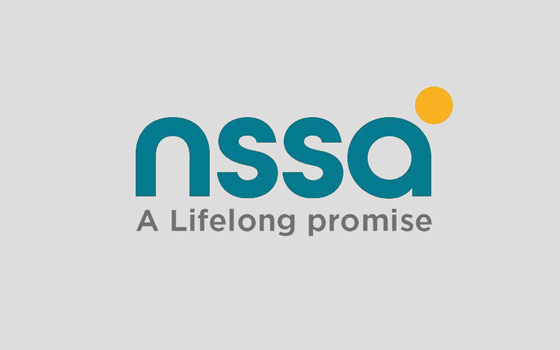
The National Social Security Authority (NSSA) has said membership in its pension schemes is mandatory regardless of whether employees are covered by a private scheme.
This means employers are required to enroll their employees in pension plans and pay contributions on their behalf.
However, NSSA has noted that some businesses fail to do so even after deducting the required amount from employee salaries.
NSSA was created by an Act of Parliament, NSSA Act (Chapter 17:04) of 1989 and is mandated to administer every scheme and fund established by the Act and to advise the Minister on all matters on the operations of the schemes and on matters relating to social security generally.
Current NSSA schemes are governed through Statutory Instrument (SI) 68 of 1990 which established the Accident Prevention and Workers Compensation Scheme (APWCS), SI 393 of 1993 which established the Pension and Other Benefits Scheme (POBS).
NSSA also administers the Factories and Works Act Chapter 14:08 and Pneumoconiosis Act 15:08 which deals with occupational safety and health in the workplace.
According to NSSA Acting Deputy Director Contributions and Compliance, Vusa Mdlongwa, rather than having to actively choose to join a pension scheme, workers are put into NSSA schemes automatically by their employer.
“All employers must register within 30 days of becoming an employer. Registration is compulsory and is through the NSSA self-service portal. After processing the application, NSSA will notify the employer of his/her Social Security Number (SSR) number,” he said during an Insurance and Pensions Commission (IPEC) Journalism Mentorship Programme recently.
“Employers being agents of the Authority are mandated to register their employees who will also be issued with social security registration numbers. Employees must then create individual accounts on the self-service portal to track their contributions and update personal details.”
Mdlongwa said after registering, there were obligations that employers must fulfill such as making payment of contributions and premiums by the 10th of each month and maintaining records of deductions made.
“Employers must notify NSSA for any change in Address, termination, or death of an employee or ceasing to be an employer. Employers must also submit the NSSA P4 return on the NSSA self-service portal monthly immediately after payroll run, or no later than the 10th of each month to avoid being penalised,” he said.

Mdlongwa said NSSA employs inspectors who have statutory powers of inspection and inquiry to enforce compliance to ensure compliance by employers, employees, and other persons with the provisions of the scheme in.
“These inspectors make sure employers are registered, enter into business premises, enforce production of wage records, carry out audits to prevent error, fraud, evasion and also institute legal recovery options,” he said.
The NSSA official said workers also have an obligation to regularly check the status of their pension contributions and membership record.
“Every employee shall provide his employer, on request, with such personal particulars as may be required, and the employee shall be responsible for the accuracy of the particulars so provided,” Mdlongwa said.
“In order to improve the quality of contribution data the Authority holds for each contributor; workers are encouraged to regularly check the status of their contributions and membership record to avoid surprises at the time of claiming benefits.”
Meanwhile, the APWC scheme covers all workers formally employed in a profession, trade or occupation who are above the age of 16 and are 100 percent funded by employers and must be enrolled into this pension scheme.
However, State employees, domestic workers and informal workers are exempted from this scheme.
“For the APWC scheme, businesses are classified according to industries and each industry is allocated an industrial code (IC) and each Industrial classification is allocated an insurance rate based on risk analysis,” Mdlongwa said.
“The rates are regularly reviewed and gazetted into law. There is no ceiling for both ZWL and USD on APWCS insurable earnings. This means that there is no need for employers who pay salaries in both currencies of ZWL and USD to determine maximum insurable earnings. The total basic salary is multiplied by the applicable APWCS rate to determine the amount due.”
The NSSA official added the APWCS premium amount is wholly funded by the employer and therefore no deductions are made on employees’ earnings.
Under POBS, the NSSA official said all employees between the age of 16 and 65 can benefit as long as they are employer funded.
“POBS is for Zimbabwean citizens who are either employed in Zimbabwe, or outside Zimbabwe as a continuation of insurable employment in Zimbabwe, Persons who are ordinarily resident in Zimbabwe and State employees,’ Mdlongwa said.
Employees who are exempted are non-Zimbabwean citizens who are not ordinarily resident in Zimbabwe, Diplomatic staff who are non -Zimbabwean, Persons employed as domestic workers and Informal workers.






